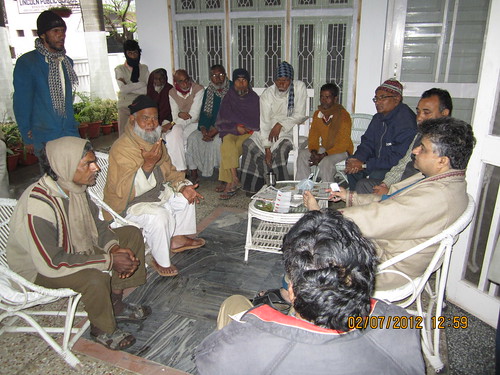By Tanvir Salim for TwoCircles.net,
The former US Speaker of the House Tip O’Neil rightly used to say that all politics is local. Yes, it is. Unless you roll your sleeves and jump in the mud, you will not know what it is all about. My attempt to understand the Muslim mindset in the backwater of Eastern Uttar Pradesh took me to the districts of Gorakhpur, Maharajganj and Sant Kabir Nagar. Ground zero is very different from what we visualize from the comfort of the ivory towers we live in.
These are heavily populated Muslim regions where there is appears to have no consensus over any single issue. The divisions are rampant. Apart from Shia-Sunni divide, which is inconsequential in this region, there are other schisms that are dominating the landscape and flourishing. The recent entrant is the Deobandi-Barelwi divide, which is widespread and is gradually impacting the way people live in this region. They are ready to even kill each other for trivial issues. Apart from the two major religious festivals, Eid and Bakreid, there are tons of other festivities which were not that prominent previously, but now are celebrated with great zeal and gusto. The state government in quest to keep the Muslims in good humor enthusiastically declares holidays on any occasion, without thinking about its relevance in Islam.

Author with the locals.
Majority of people in this region are indulged in menial day to day jobs, where the income is inadequate to support the family. Hence they are in crisis mode all the time. They want to earn more, but they don’t know how? At the most they can think of becoming a petty store owner, or indulge in a low paying trade to make ends meet.
Lack of education is one of the biggest drawbacks that constrain their ability to move forward. But the good news is that the new generation is having dreams and they are diligently working towards their dreams, but they need help to break the glass ceiling. Unfortunately, here the glass ceiling is placed very low, often at the elementary school level.
Majority of school going kids drop out early because parents are in a state of hopelessness and despair. They are not sure how long it is worth sending their children to school, when sooner or later they have to drop out anyway.
Politically this is a very charged area, where every other person is either a politician or is vying to become one. Why? When your education is not one of your strengths, then you are bound to go for the short cut, and what is better than trying your luck in the profession where your education qualification is meaningless.
It is the need of the hour that “educated” Muslims should opt for politics. Absence of women is noticed in this arena. The women are discouraged from getting into politics. Even in the local body elections for the localities, where the seats are reserved for women, it is the male member of the family, usually the husband who calls the shots. The role of the woman, who actually is contesting, ends after filing the nomination, after which her role is reduced and the husband, brother or father takes over. This is sad, but true.
The list of grievances is long, and generally starts with the demolition of the Babri Masjid. The ones who have their ears on the ground quote the findings from the Sachar Committee Report to make their point. True, they are not doing well at all. If we look at their living conditions, then there is no denying to the fact that their point is valid. Hygiene is the first casualty. In general Muslim neighborhoods are dirtier than the neighborhoods where any other community dwells. How can they focus on cleanliness when they are unsure about the next meal?
Fed up with the existing political parties they all talk about having their own political party, but they don’t realize what it takes to have a political party? Nobody amongst them have the skills or the patience of Kanshi Ram to work at the grass root levels to create a structure that can challenge the existing satraps.
In the end, it is likely to be business as usual with no improvements which are foreseen.
(Author Tanvir Salim is a Nuclear Engineer, settled in USA, but presently is in India. He can be contacted at www.tanvirsalim.com)
